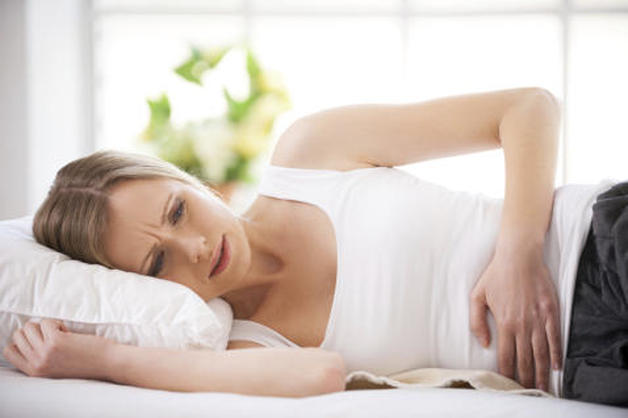|
Crohn's Disease is an Inflammatory Bowel Disease (IBD) involving inflammation of the digestive tract. Symptoms include abdominal pain, severe diarrhea, fatigue, weight loss and malnutrition. Though a cure has not yet been found for Crohn's Disease, a variety of therapies have been shown to greatly reduce the symptoms. Common treatments include anti-inflammatory drugs (corticosteroids, oral 5-aminosalicylates), immune system suppressors (Azasan, Imuran, Remicade, Humira, Cimzia, Traxall, Tysabri, Entyvio, Stelara), antibiotics, and symptom suppressors (anti-diarrheals, pain relievers, iron supplements, B-12 shots, Calcium, Vit.D supplements). While these medications are helpful for many people, they often come with unpleasant side effects. These side effects are one of the reasons many people suffering from Crohn's Disease and other forms of IBD turn to acupuncture. In recent years, acupuncture has been well researched in numerous rigorous empirical studies. It is proven to be an effective treatment for all forms of IBD. Acupuncture is proven effectiveA randomized controlled trial conducted in 2014 compared the effectiveness of real acupuncture and moxibustion with superficial acupuncture and sham moxibustion for mitigating the effects of Crohn's disease. Results showed that Crohn's Disease Activity Index (CDAI) scores were reduced in both groups after treatment, though the degree of improvement in the real acupuncture group was significantly greater. Additionally, in the real acupuncture group the improvements were sustained following the end of the treatment, whereas this was not the case for the control group. Both groups demonstrated significant improvements in quality of life scores, though the improvement was significantly greater in the real acupuncture group. The real acupuncture group also showed significantly increased hemoglobin levels as well as significantly reduced C-reactive protein levels and histopathological scores at the end of the treatment, whereas the control group did not exhibit significant changes. Researchers concluded that acupuncture with moxibustion is an effective treatment for Crohn's Disease, as it provided significant therapeutic benefits beyond the placebo effect. (7) Another randomized controlled trial conducted in 2004 compared the effectiveness of Traditional Chinese acupuncture with sham acupuncture. Results showed that the CDAI scores were reduced in both groups after treatment, though as in the previously mentioned study the degree of improvement in the real acupuncture group was significantly greater. In both groups these changes were associated with improvements in general well being and quality of life, though real acupuncture was statistically superior to control treatment. Researchers also found that serum markers of inflammation (α1-acid glycoprotein levels) fell significantly in the real acupuncture group. They concluded that acupuncture offers significant therapeutic benefit to those suffering from Crohn's Disease. (8) In 2013 a systematic review of randomized controlled trials was conducted looking at the efficacy of acupuncture and moxibustion on inflammatory bowel diseases (IBD). 43 randomized controlled trials were included in the review. Among these, 10 studies specifically compared the effectiveness of acupuncture and/or moxibustion treatments with the effectiveness of oral sulphasalazine. Results showed that acupuncture and moxibustion therapy were significantly more effective than oral sulphsalazine at relieving the symptoms of Crohn's Disease. (9) A variety of empirical studies have looked into the biological effects of acupuncture on those suffering from Crohn's Disease. Below is a summary of these findings: (6)
Links to these studies and more can be found below in the Resources & Related Links section. How acupuncture worksAcupuncture yields multiple biological responses, related to the stimulation of sensory neurons that connect to structures within the central nervous system. This leads to activation of pathways affecting various physiological systems in the brain as well as in the periphery. Effects of this include a decrease in inflammation both generally and locally, as well as modulation of circulation in the area being treated. Acupuncture has also been shown to influence the release of naturally occurring pain relievers within the body, including endogenous opioids and endorphins. Acupuncture's effects are also associated with stimulation of the parasympathetic nervous system. Many people are familiar with the sympathetic nervous system, which controls our "fight or flight" response. The parasympathetic nervous system is paired with the sympathetic nervous system, and has the effect of clearing out stress hormones and re-allocating the body's resources towards digesting and healing. It is associated with improved activity of the immune system, as well as a greater sense of calm and well being. Acupuncture treatment has also been found to activate the hypothalamus and the pituitary glands, resulting in a broad spectrum of systemic effects that support general homeostasis. Learn moreTo learn more about acupuncture and how it works, take a look at About Acupuncture or How Acupuncture Works. To learn more about the differences between Eastern and Western medicine, you can read About Eastern Medicine. To learn more about the Wisdom Traditions Acupuncture clinic, read About Us or Our Philosophy. If you have any additional questions, you can browse our FAQ or Contact Us. We're happy to answer any questions you may have. You can also Schedule an Appointment online. Resources and related links
0 Comments
Leave a Reply. |
AuthorMarni Adhikari, M.Ac, L.Ac, Dipl.Ac, is the founder and acupuncturist at Wisdom Traditions Acupuncture of Essex Junction, VT Learn MoreQuestions? |


 RSS Feed
RSS Feed
